- Learning time
- 10 minutes
- First play time
- 30 minutes
Opale
Designed by: Rüdiger Dorn
Can you save the Kingdom of Atlea from the evil witch?
In Opale, (previously published as Dragonheart) the stakes are allegedly high, with witches to defeat and noble dragons to free, but the theme falls away pretty quickly and is replaced by a fast-moving, luck-pushing score-the-most-points vibe. Two players face off over a board with a deck of cards each. You deal yourself a hand of six and begin taking turns; playing card/s to the board and, you hope, removing cards too: any removed cards are worth the points value printed on them.
There’s something of a rock/paper/scissors logic to what the cards do. Some simply sit there waiting to be claimed, but others trigger a claim: play a card to location A to take all cards from location B. Play the fourth card to location C to claim all four cards at location C. Play the third card to location D to claim cards at location E, then move cards at location D to location F. Take all cards at location F by playing exactly three Undersea City cards. Increase your hand size by playing the fourth matching card to point G – claiming the dragon pawn (three points if you still hold it at the end of the game) Each location on the board does actually have a name, but to be frank this paragraph might get even more confusing with those. The thrust here is that you want to get as many cards off the board as you can – particularly the higher-scoring cards – but to do so you usually have to leave some behind, which carries the risk that they’ll be swept up by your opponent in short order.
The Undersea City cards are pivotal, because each player only has six in their deck and you must play three in order to claim the accrued cards for that spot. If you have three in your hand it’s tempting to do so – but then the longer you wait, the more cards (and points!) accrue there. On the other hand, what does your opponent have? Are they going to swoop in before you do? When the third set of city cards are played the game ends, and the player with most points is crowned best subaquatic dragon-rescuer and witch dispenser.
Also in the box are two variants – Foreshadowing and Magic Shells. They add a little flexibility over how you manage and play your cards, but don’t change the basic rules above.
The guru's verdict
-
Take That!
Take That!
There's no direct interaction - you can't steal points from each other. But *plans* can, and will, be harpooned on a regular basis.
-
Fidget Factor!
Fidget Factor!
Low to non-existent
-
Brain Burn!
Brain Burn!
Low. Your hand size is usually five, and although there are decisions to be made, the game's nub is about a. reading what your opponent might be up to based on what they have played and b. how lucky you feel.
-
Again Again!
Again Again!
That slightly convoluted story about dragons may not satisfy fantasy lovers, as the theme is pretty irrelevant. But the play is nice and zippy.

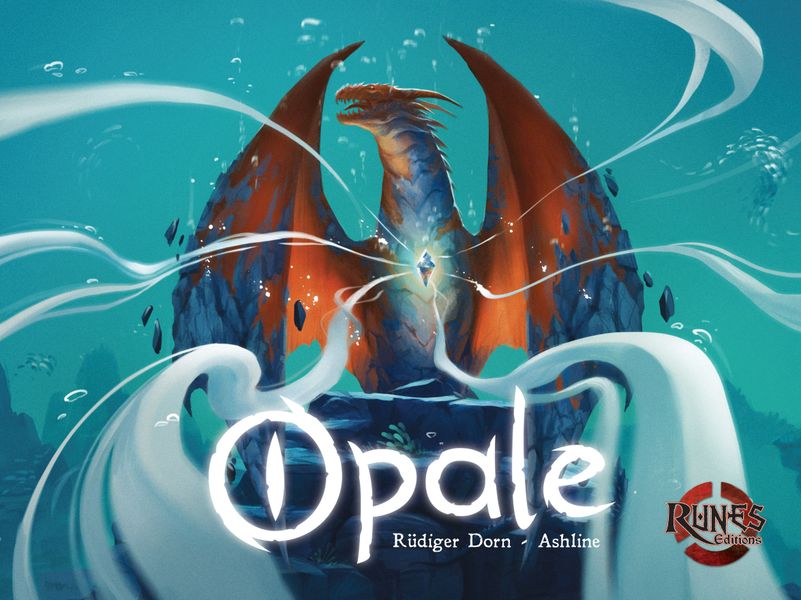

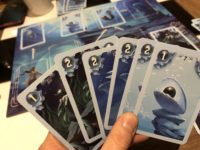




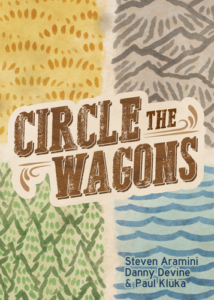
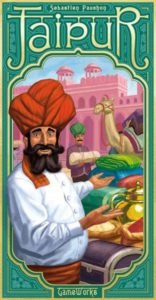
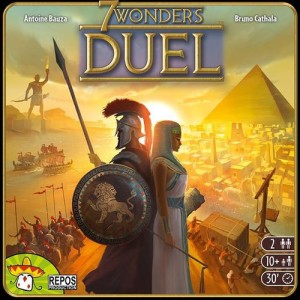
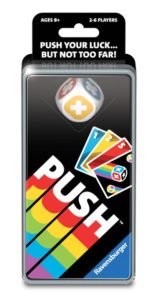
Sam says
Opale ticked some boxes for me - easy to learn, fast-moving, seamed with a nice bit of luck-pushing. It is exceedingly mechanical though, the play being so far removed from the theme as to feel almost like a separate identity - and I can imagine as fun as the speedy play would be for some, others would find it a bit of a dud for that reason. Having played it I like the snappiness of the design, but it's not one I long to return to. For two players I think Jaipur or 7 Wonders Duel offer more interesting decisions (admittedly at a less frantic pace), for more players PUSH has a similar when-shall-I-quit feel to it.